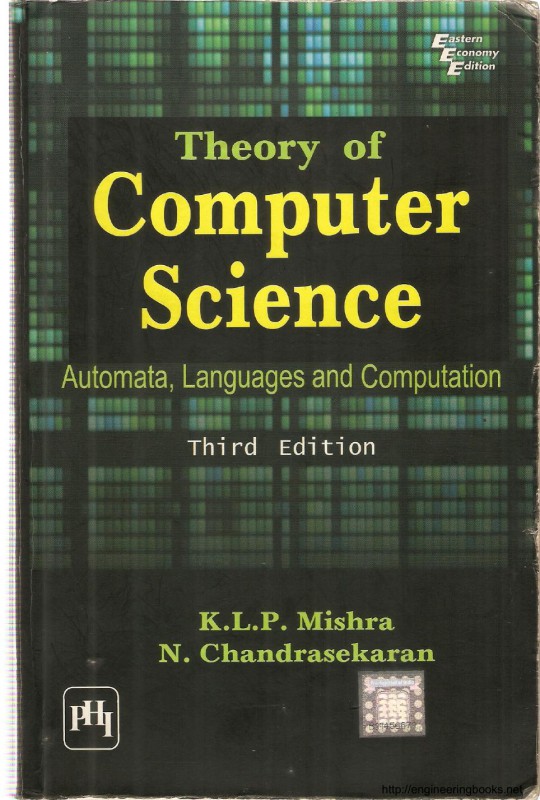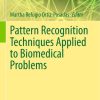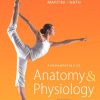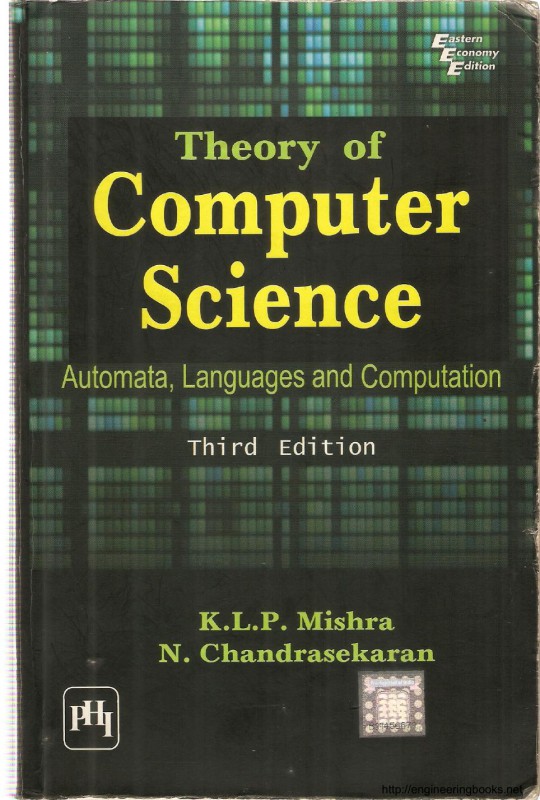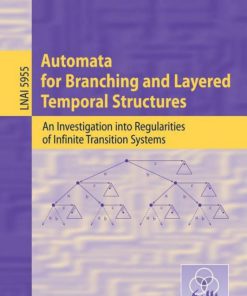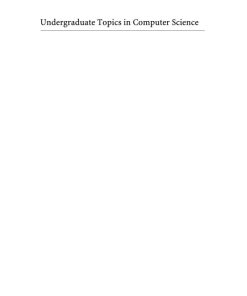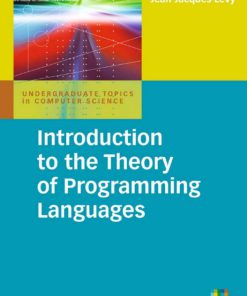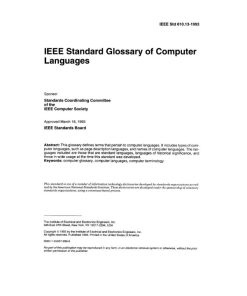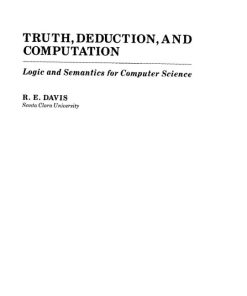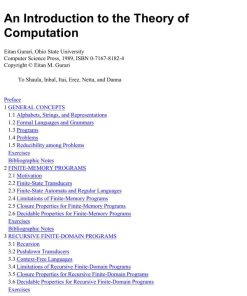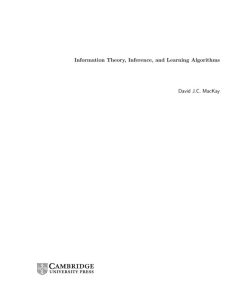Theory of Computer Science Automata Languages and Computation 3rd Edition by ISBN KLP Mishra, N Chandrasekaran ISBN 9788120329683
Original price was: $50.00.$25.00Current price is: $25.00.
Authors:K. L. P. Mishra; N. Chandrasekaran , Series:IT & Computer [410] , Tags:Computers; General; Computer Science , Author sort:Mishra, K. L. P. & Chandrasekaran, N. , Ids:Google; 9788120329683 , Languages:Languages:eng , Published:Published:Jan 2006 , Publisher:PHI Learning Pvt. Ltd. , Comments:Comments:This Third Edition, in response to the enthusiastic reception given by academia and students to the previous edition, offers a cohesive presentation of all aspects of theoretical computer science, namely automata, formal languages, computability, and complexity. Besides, it includes coverage of mathematical preliminaries. NEW TO THIS EDITION • Expanded sections on pigeonhole principle and the principle of induction (both in Chapter 2) • A rigorous proof of Kleene’s theorem (Chapter 5) • Major changes in the chapter on Turing machines (TMs) – A new section on high-level description of TMs – Techniques for the construction of TMs – Multitape TM and nondeterministic TM • A new chapter (Chapter 10) on decidability and recursively enumerable languages • A new chapter (Chapter 12) on complexity theory and NP-complete problems • A section on quantum computation in Chapter 12. • KEY FEATURES • Objective-type questions in each chapter—with answers provided at the end of the book. • Eighty-three additional solved examples—added as Supplementary Examples in each chapter. • Detailed solutions at the end of the book to chapter-end exercises. The book is designed to meet the needs of the undergraduate and postgraduate students of computer science and engineering as well as those of the students offering courses in computer applications.

